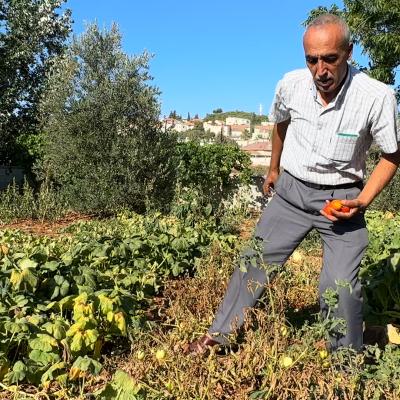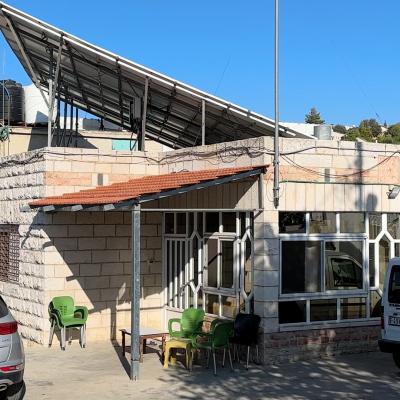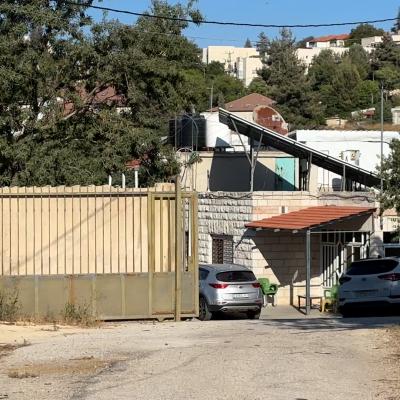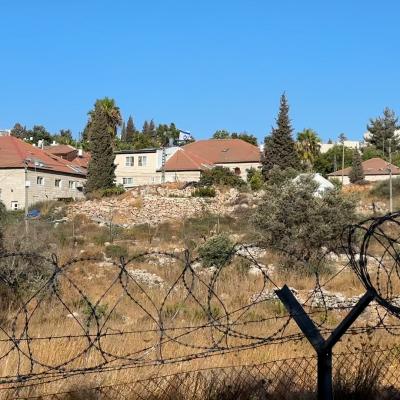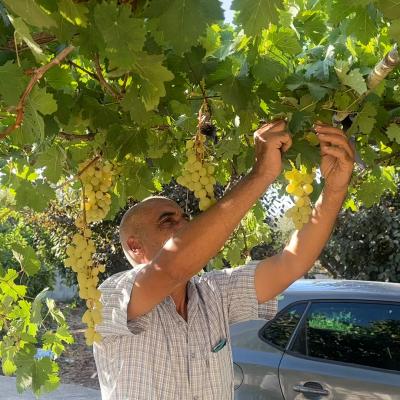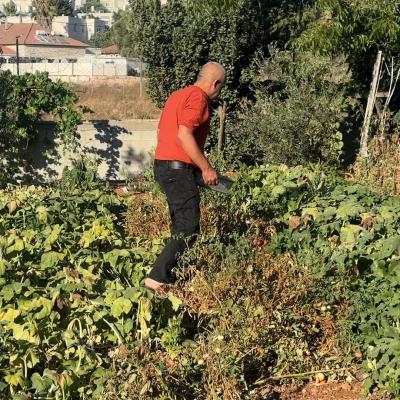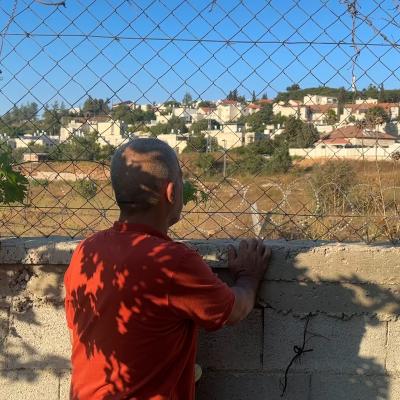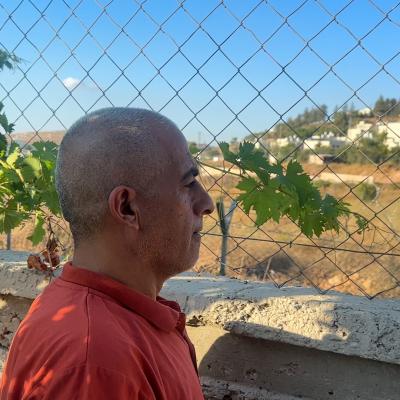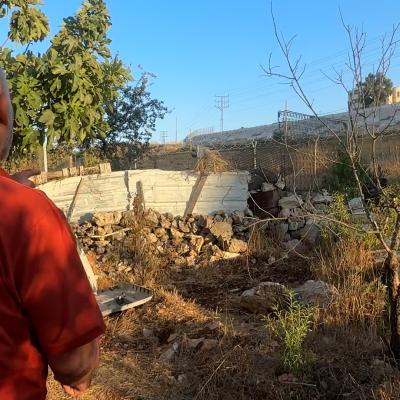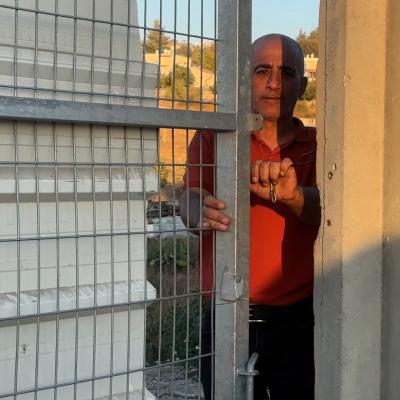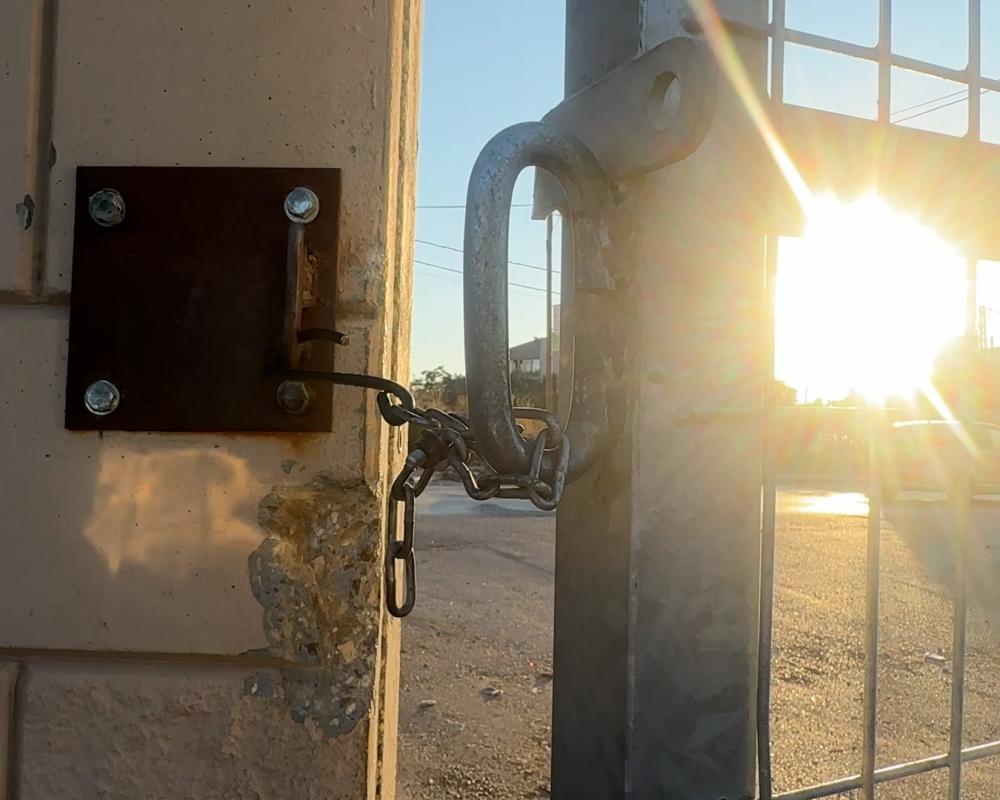
Ramallah / PNN/
Three adjacent houses, belonging to Hamid and his two brothers, stand isolated behind a separation wall that divides them from the residents of the nearby Jalazone refugee camp, just a few metres away. However, due to the barriers imposed by the occupying forces, the camp now feels much farther away. Nearby, the Beit El settlement, illegally established on Palestinian land north of Ramallah, continues to expand, devouring more land each day.
Barbed wire surrounds the wall enclosing the three houses, next to a settler road that was constructed only two months ago. There's also a gate with two keys—one held by the Hamid brothers and the other by the settlers.
The settlers open the gate whenever they please, while the family is required to open it upon entering or leaving, ensuring it is closed immediately after. "We are not allowed to leave the gate open," said Hikmat Hamid, a member of the family.
The story of the three brothers, Hussam, Hikmat, and Hazem Hammad, began 46 years ago when their father decided in 1978 to build on a piece of land near the Jalazone camp. At the time, the three adjacent houses were constructed, and Beit El did not yet exist. The homes are older than the settlement itself, which started with just a few caravans at the end of 1978, slowly expanding over time like a creeping cancer.
Hikmat Hamid added that in 2017, the occupation forces completed the construction of the wall in the area, fully enclosing his and his brothers' homes.
A Sudden Attack by Settlers
On April 13th of this year, a Saturday night at around 11:30 PM, settlers launched a sudden attack on the Hamid brothers and their families, breaking into their homes. When the family became aware of the attack, the settlers fled—there were about 150 of them. The next day, in the afternoon, the settlers returned with the occupation forces, pelting the area with stones. After a confrontation with them, Hikmat Hamid reported that the settlers eventually withdrew.
The family recounts the subsequent events, saying, "It didn’t end there. The settlers and the Israeli army returned at night, while our sons were still outside. As they entered through the gate in their car, gunfire erupted from all directions. Hussam and Hazem's sons were wounded by the bullets. Hikmat’s wife stepped out to see what was happening and was shot as well.
However, the Red Crescent teams were unable to get an ambulance through the gate to save the injured. We eventually had to transport them to the hospital in a private vehicle for treatment."
The Suffering of Schoolchildren
Hikmat emphasized that the most significant issue in this daily ordeal is the fear and anxiety experienced by the young children, who are still in school. After the latest settler attack on the family, the children refused to attend school for twenty days, unwilling to leave the house at all, feeling utterly unsafe. Previously, whenever they went to or returned from school, an older family member would be at the gate to open it for them and then close it behind them.
In the yard, there’s a swing that from a distance appears as if it’s never without someone joyfully playing on it. But in reality, it’s rarely used by the children, who only dare to play on it when an adult is present, out of fear that the settlers might attack at any moment. The 21 residents of the house, including children as young as six, were born here and continue to grow up isolated behind a wall that separates them from their peers and the outside world.
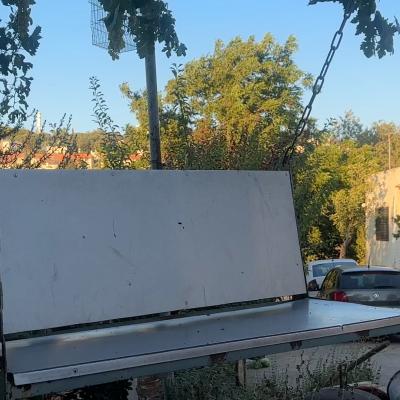
Hikmat sorrowfully explains that the children are suffering psychologically due to the settler attacks and have been seen by doctors for psychological support. They can no longer sleep alone in their rooms, needing to stay close to their parents instead.
Hamid wonders, "How much longer will this go on? The attacks by the occupation and its settlers continue, but we remain steadfast. We will not leave; this is our home; this is our land."
A Livelihood of Decades... Closed Down
Hikmat Hamid noted that the family established a chicken farm in the 1990s, which had been a source of income for years, employing his son and his nephew. However, after the occupation forces installed a narrow gate on October 26th last year, they could no longer bring in the large trucks needed to transport chickens and feed. The family was forced to close down the farm, keeping only 40 chickens for their own food and self-sufficiency.
Hikmat pointed out that there is a plot of land, no less than one dunam, surrounding the three adjacent houses.
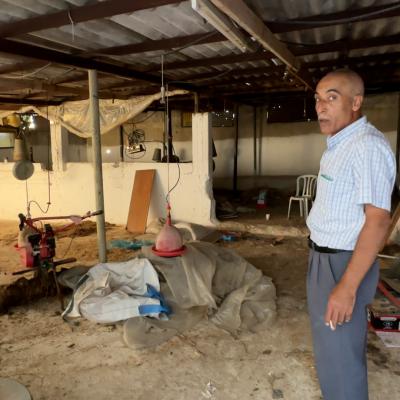
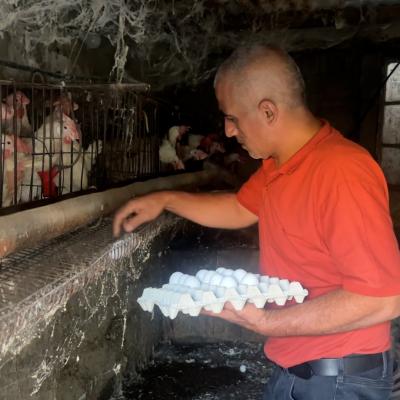
The Hamid brothers have planted it with fruit trees (figs, grapes, almonds, and others), as well as various vegetables (tomatoes, zucchini, okra). The sole purpose is to strengthen the principle of self-sufficiency for the family in case the gate is closed for an extended period.
Resilience is the Family's Message
Hussam Hammad, the second brother, stated, "We are holding onto our homes, and we will not leave. This is a form of resilience and connection to the land." He added, "We are refugees from Al-Abbasiyya, Jaffa, a village whose inhabitants were displaced during the Nakba in 1948. After our first displacement, we are not willing to go through it again. We have experienced the hardships of being refugees and understand what it means. It is difficult for a person to abandon their past."
No Hope for Holding the Occupation Accountable
Hussam Hamid also mentioned that the occupation authorities prevent the family from building. Those who marry are forced to leave the area and live elsewhere, having lost hope in holding the occupation accountable for its continuous assaults and attempts to displace them.
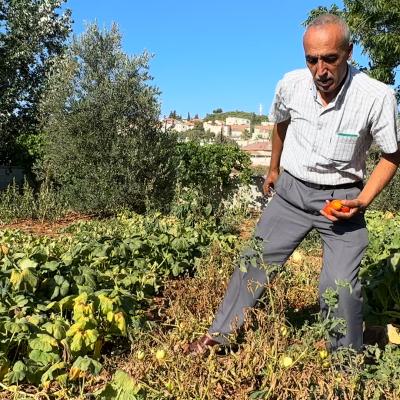
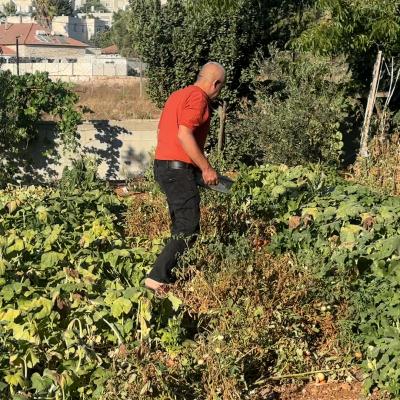
Hussam said, "When the judge is your adversary, to whom do you complain?" The family has reached out to the Palestinian liaison and the Red Cross, but to no avail. However, according to him, the President's office did assist them in repairing what the settlers had destroyed, including the solar panels and constructing a wall that now needs to be higher to protect against settler attacks.
The family has rejected attempts by the occupation and settlers to uproot them from their homes and land. These attempts have included offers of money and land in exchange for their departure, as well as ongoing assaults and crimes against them.
This story was produced as part of the Qarib program, implemented by the French Agency for Media Development (CFI), in partnership with and funded by the French Development Agency (AFD).
